Meet the Button Obsessives Who Salivate Over Hillary and Trump Souvenirs
The 2016 election as told by its buttons.
 A button signed by Hillary Clinton. (Photo: Bob Levine)
A button signed by Hillary Clinton. (Photo: Bob Levine)Laid up in a hospital bed, recovering from a spider bite, Bob Levine pays close attention to the television screen. It’s the Democratic National Convention in Philadelphia. Levine, who is an active member of the Democratic Party in his home state of Missouri, should have been there. He rues missing a historic three days for Hillary Clinton and her supporters.
Ill-health also kept him from the GOP convention in Cleveland. Levine was again bed-bound at the Barnes-Jewish Hospital in St. Louis. The RNC didn’t have the same emotional draw, politically at least, but was still an opportunity to do what he does best: Buy and sell buttons.
This isn’t just a source of employment for the man known to his friends as “Button Bob.” For the button obsessed, each item tells a story. Each exchange is exciting, says Levine.
“Having the proof of the election in my hand. Oh my god, it’s magnificent,” he says.

Homemade by “Button Bob” Levine. (Photo: Bob Levine)
Candidates have spent millions on dollars in the last year producing election swag, and a lot of it ends up in the hands of the collectors. Levine has dealt in buttons, lapel pins and other political campaign memorabilia for most of his life. He’s sold at 30 different political events in 2016 alone, and traded on the street, outside cinemas, at speciality shows, and on the internet over his long career.
The hectic election cycle this year, where dozens of candidates rose and fell, affects traders and collectors like Levine in a special way. It’s an opportunity, and a race, to accumulate a comprehensive set of memorabilia. At one point, there were nearly 20 different candidates—and many more buttons—competing to be the Republican nominee. To a collector like Levine, a rare item from a candidate who withdrew before the primaries might be worth more than one from a prominent campaign.
Large companies print tailor-made designs quickly and cheaply, which means there may be thousands of pieces per candidate. And this means the search for every button is almost infinite. Yet in their own unique way, the collectors have cataloged the political history of America. Buttons have marked every presidential election since George Washington.

Buttons marking George Washington’s inauguration in 1789. (Photo: Mark Powers)
Mark Powers, a passionate button collector from Harrisburg, Pennsylvania, is lucky enough to have three of the buttons produced to celebrate Washington’s inauguration. Button gold, they are locked in a safety deposit box.
A self-confessed “political junkie,” Powers has a collection of buttons that numbers more than 35,000. He says he has insured his entire button collection, which also includes pieces related to President Lincoln, for around $80,000. This year, he attended both conventions by volunteering for the American Politics Items Collectors (APIC) booth.
A love of politics often motivates people to collect memorabilia. Powers grew up in New York City, and at school one day in 1960, he was given a “Nixon for President” pin. When he got home, someone in his apartment building told the youngster he shouldn’t be wearing a Nixon pin, and gave him a John F. Kennedy one to wear instead, a “flasher” style button. From that moment on, says Powers, he became a Kennedy supporter—and a button fanatic.

Finding the space to keep memorabilia is a challenge in itself. At the end of an auction, newly purchased goods need a storage place. For collectors with thousands upon thousands of items, not everything can be shown off in a glass cabinet. Powers’ collection is spread between his home and a safety deposit box at the bank.
Although he is often intrigued by other items of political paraphernalia, Powers has to restrict himself to buttons, sometimes in the interest of his own marriage.
“I have to be really careful because every time I bring something home that isn’t a button I get a look from my wife,” he says.
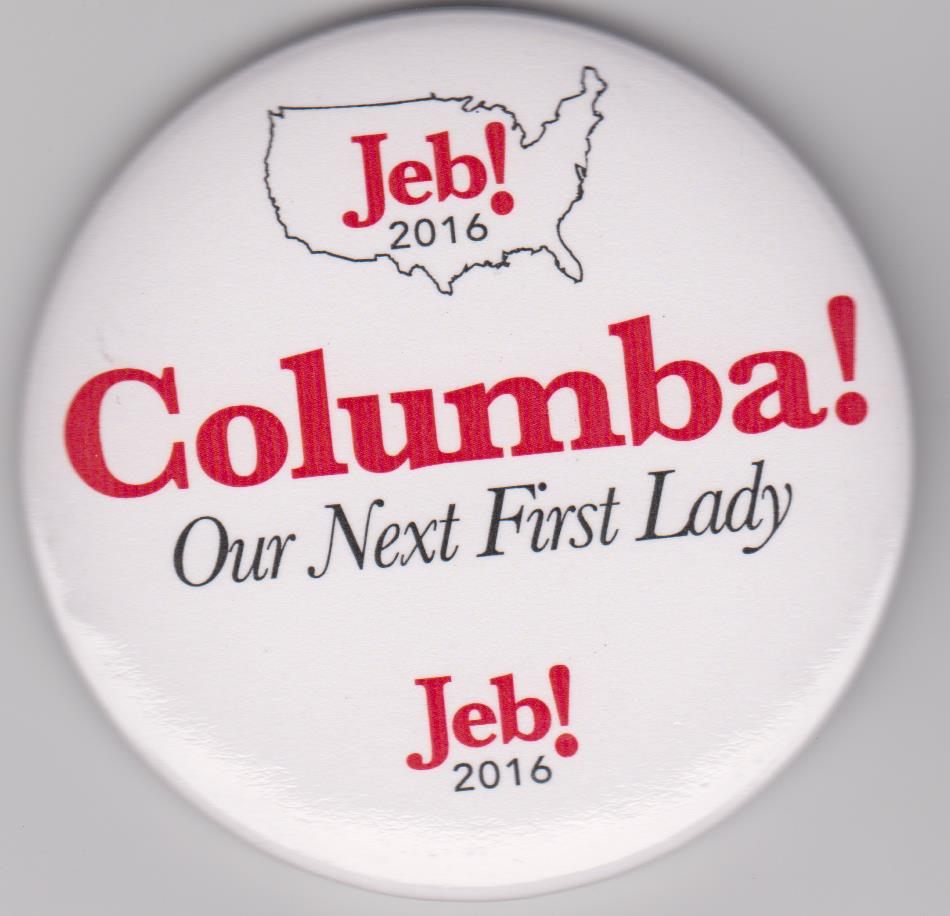
Never looked likely. (Photo: Bob Levine)
Collectors like Powers used to rely on marquee events like the conventions and APIC exhibitions to gain access to the best items. But in this election, the buying and selling of buttons has benefitted from a growing number of online marketplaces, especially on Facebook. It has never been easier to search for the promotional items of obscure candidates.
Facebook exchanges cater to different tastes, and are growing bigger every week. The largest is a group run by APIC, which has more than 1,500 members. There’s a JFK exchange and an Obama exchange. Then there’s a site for local political memorabilia, one where you can have your item valued by an expert, and another dedicated to paper items like posters and flyers.
Todd Klimson runs a Facebook group that specializes in the 2016 election. As the group’s administrator, he accepts new members who are then able to advertise their wares, or put out requests. Klimson, an ardent Republican and yacht dealer from Florida, also has a large collection of buttons himself.
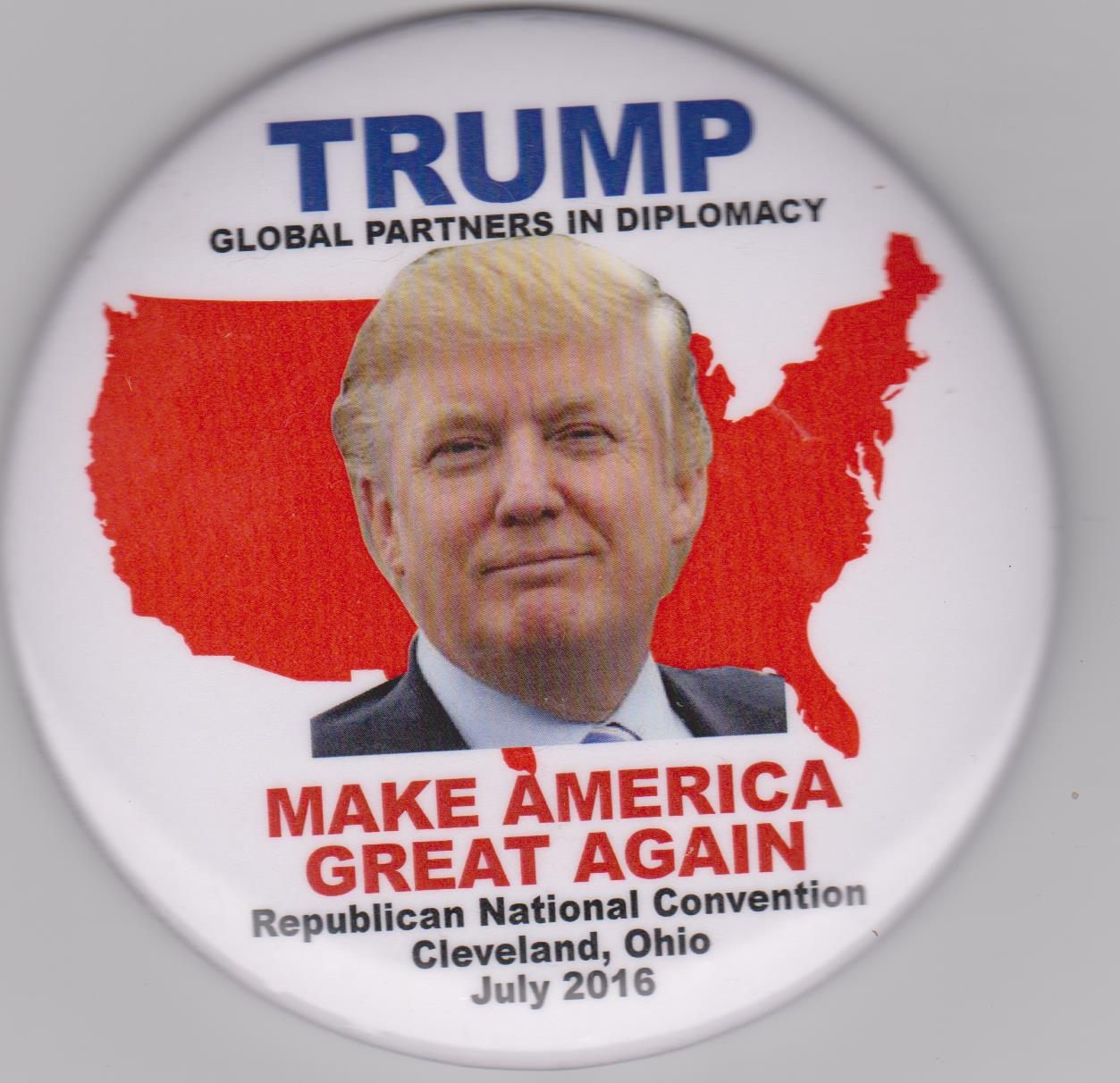
Donald Trump button. (Photo: Bob Levine)
“We’re all serious about what we’re doing. Everybody knows each other,” says Klimson. The collectors know “who sells authentic stuff,” he says. “If you sell something that’s fake, everyone on the exchanges will know about it. You’ll get blackballed.”
There is money to be made in all of this, too. Klimson has old Barack Obama senate election campaign badges that he believes will bring in several hundred dollars one day. His friends always laugh when they see the dozens of Obama items stored at the avowed Republican’s house.
From this election, Klimson has collected at least 400 Trump and Clinton items that he’ll retain while he waits for their values to increase.

The office of Mark Warda, where he keeps thousands of buttons. (Photo: Mark Warda)
Nestled inside garages and cupboards across the U.S., these buttons preserve in tiny physical form the most, and sometimes least, important moments in American political history. Some button fans collect almost any button they can get their hands on. Others have a niche; a political candidate they like, or a social movement or a period of time. For collecting purposes, the more obscure and older the better.
This mantra certainly applies to another collector from Florida, Mark Warda. For years, Warda had a gap in his collection: John W. Davis, a Democratic presidential candidate who lost by a landslide to Calvin Coolidge in 1924. When Warda finally got his hands on a John W. Davis button, he made the candidate his speciality. Since then, he has built a virtual museum dedicated to the little-known politician that displays all his Davis buttons and other memorabilia.
At his office and home, Warda has three rooms devoted to the storage of buttons and other relics from campaigns of the past. There’s over 100,000 pieces of memorabilia in total. In some cases Warda, who works in land trusts, has thousands of the same button design. He’s also written two books on the history of political collectables.
Warda imagined he would devote his house to buttons, and keep his thousands of items on permanent display. But, he says, life got in the way. “I had thought I would start a museum and this would be for the gift shop, but I got married and had kids instead.”

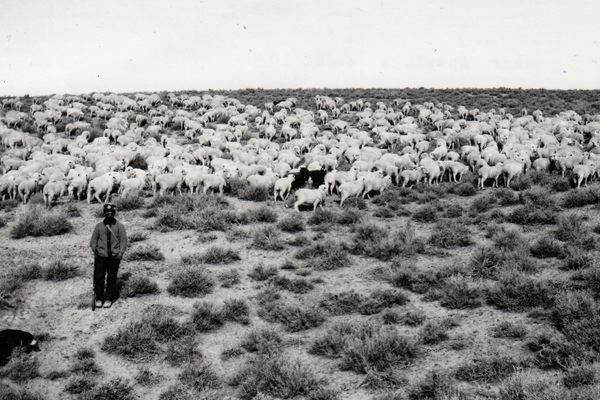
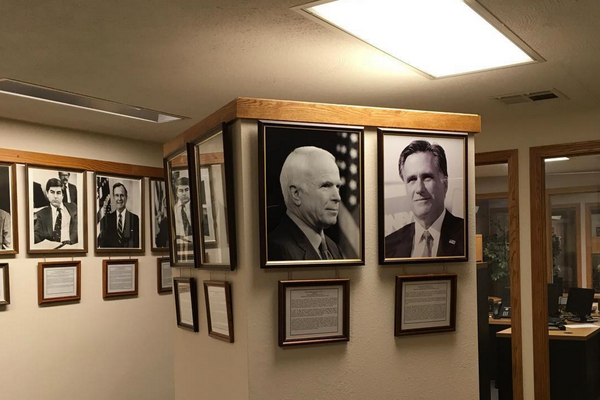

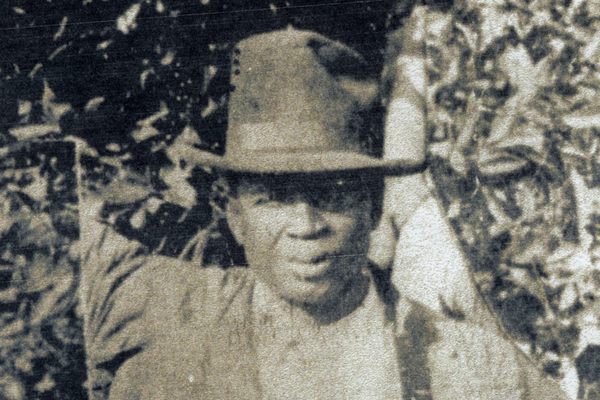

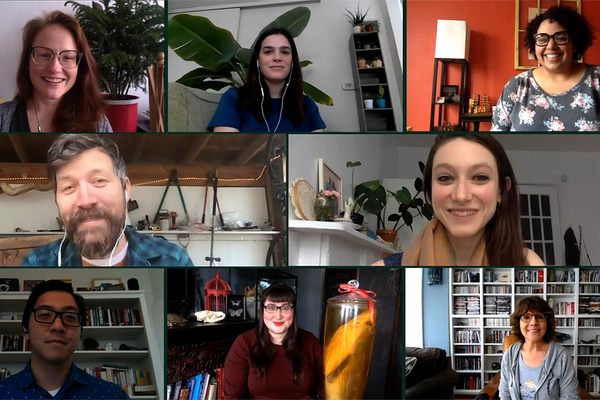
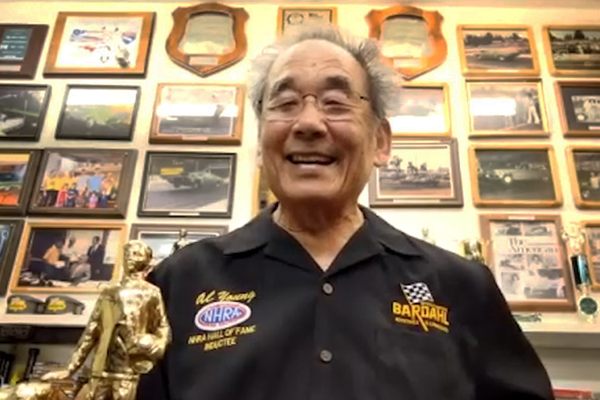
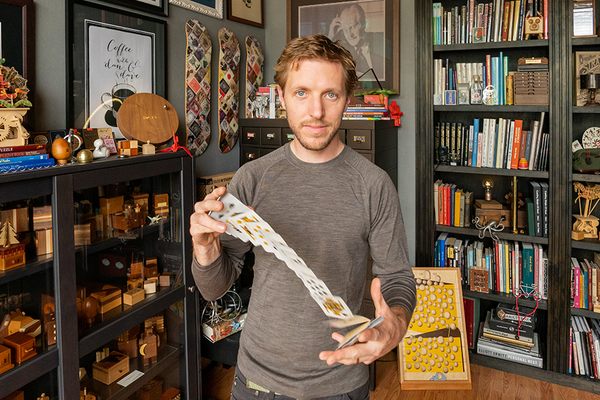


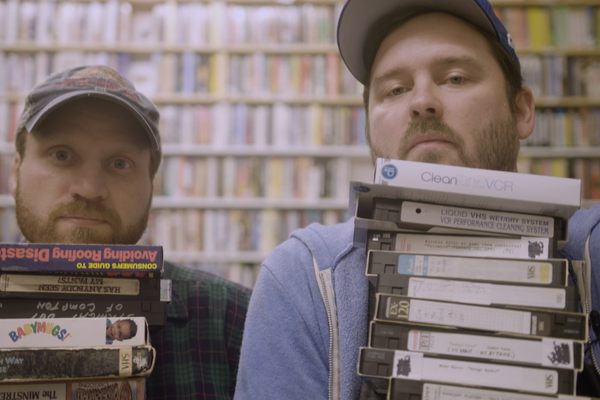


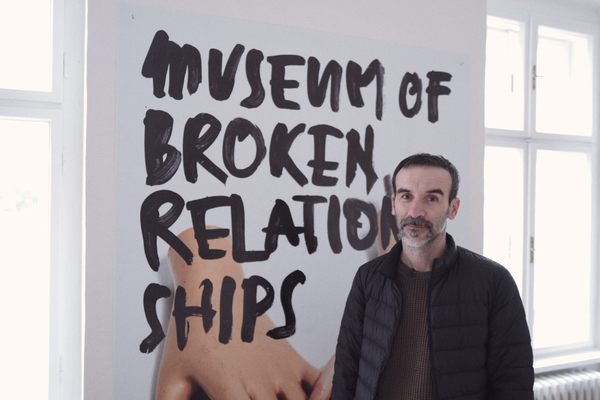


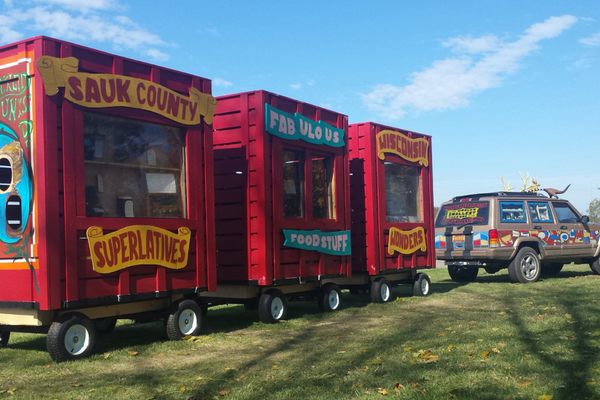

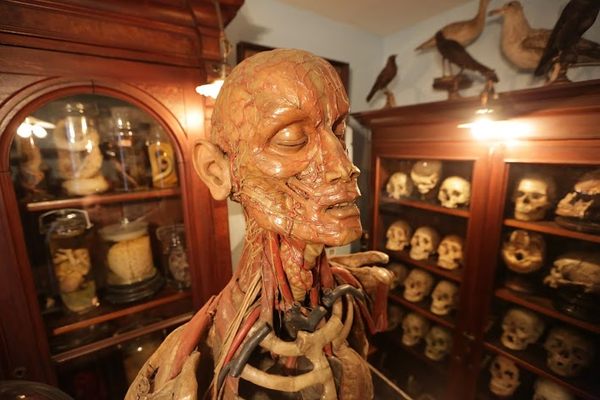






Follow us on Twitter to get the latest on the world's hidden wonders.
Like us on Facebook to get the latest on the world's hidden wonders.
Follow us on Twitter Like us on Facebook